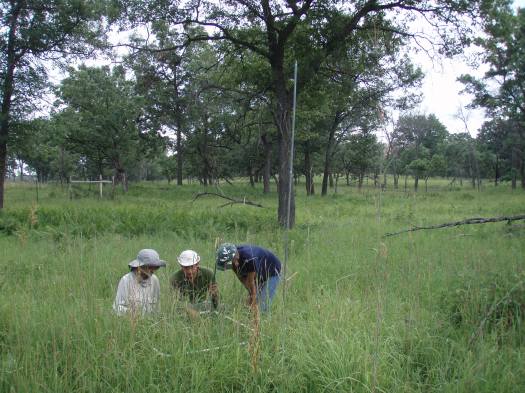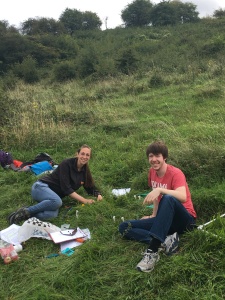As mentioned in a previous post, I was lucky enough to be awarded one of the inaugural ARC Discovery Early Career Researcher Awards (DECRA) late last year. I officially started my DECRA research in April, so I thought it was time that I introduce it – albeit rather briefly.
In essence, I am planning to investigate the susceptibility of native vegetation edges to alien plant invasion using quantitative and experimental approaches. The project will contain both theoretical and applied elements and will primarily examine plant invasion through a community ecology lens (or is it community assembly through an invasion lens??!).
I’ll specifically be looking at the combined (and interactive) effects of species traits, resource availability and propagule pressure on invasion success using Bayesian meta-analysis, causal modelling and a field experiment. As stated in my grant application, “disentangling effects of alien species’ seed supply, high resource availability (light, water, nutrients) and species’ traits on invasion will indicate their relative influence on plant invasion and community assembly. As a result, new knowledge will be gained on the efficacy of invasive species prevention and control by indicating which invasion pathways to target, and under what conditions.”
The project will run for three years and I’ll be splitting my time between Australia and the US to achieve it. The plan is to work with CEED/NERP folk on the more quantitative aspects of the project while in Australia (principally with people like Brendan Wintle, Cindy Hauser, Mick McCarthy and Peter Vesk in the QAEcology group at Melbourne Uni, but also with Phil Gibbons and David Lindenmayer at the Australian National University; more on that later). I’ll conduct the experiment at Cedar Creek Ecosystem Science Reserve in Minnesota working with David Tilman. I’m planning to spend two months at the University of Minnesota this year (July-August) and then 6 months for the following two years (roughly April-Sept/Oct). As a lover of warm weather, an endless summer comes as an added bonus!



